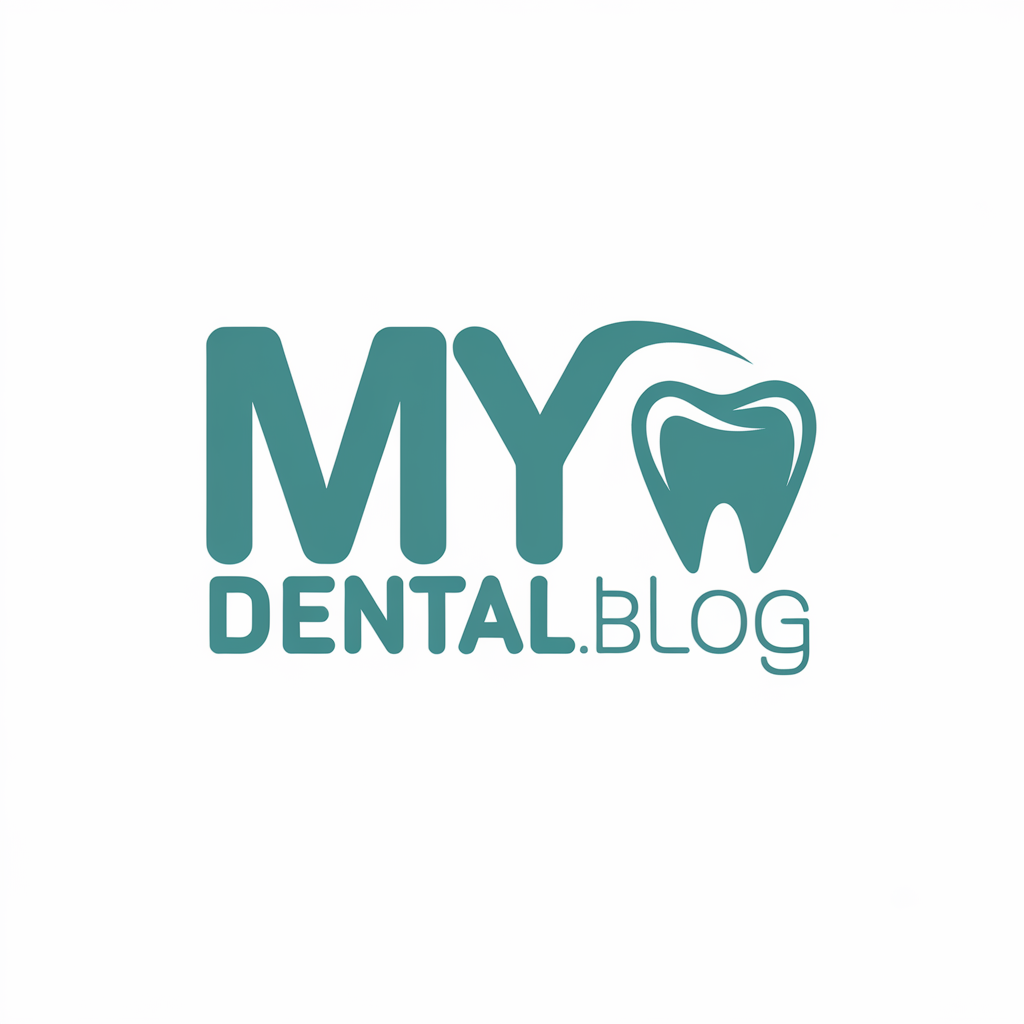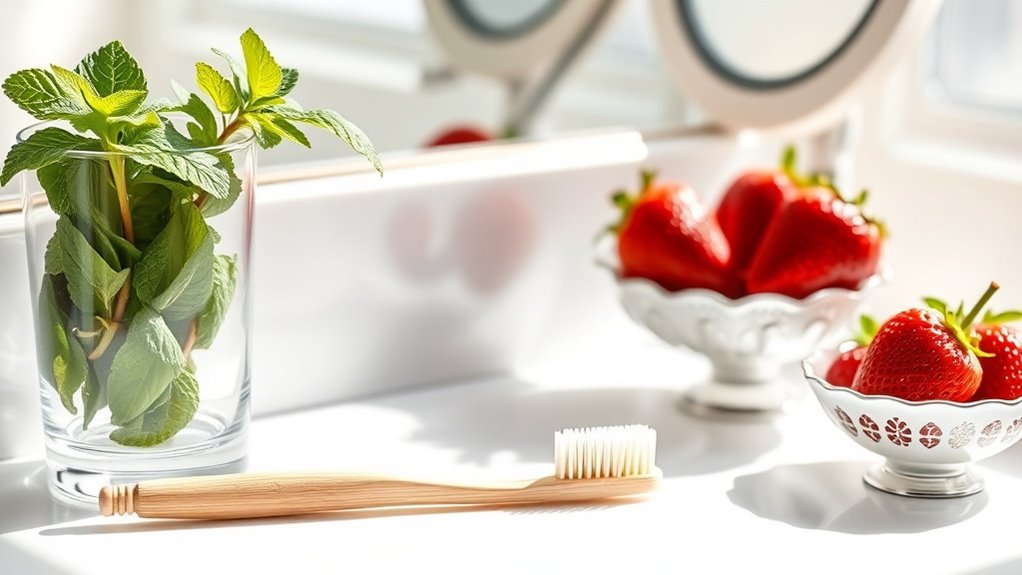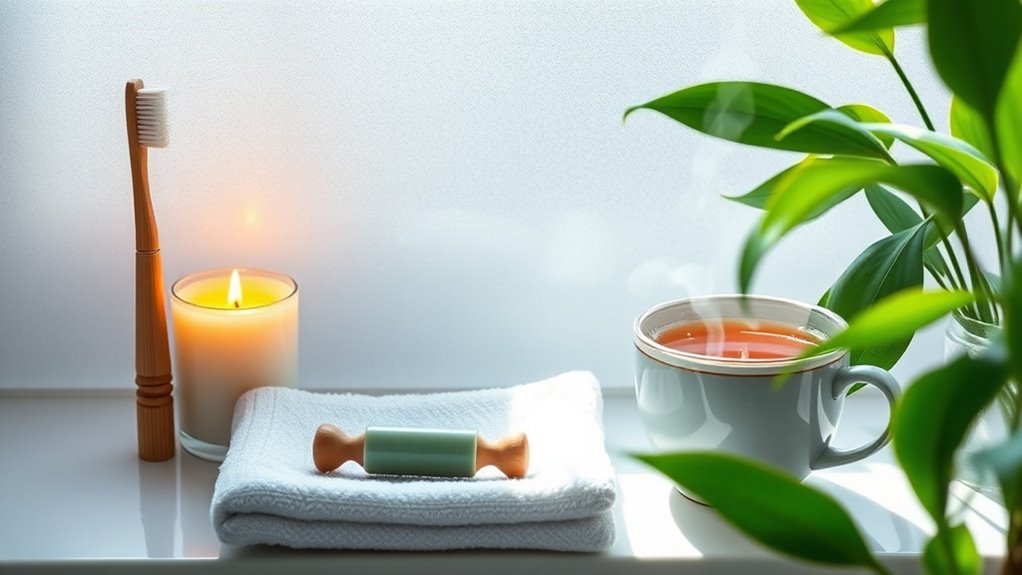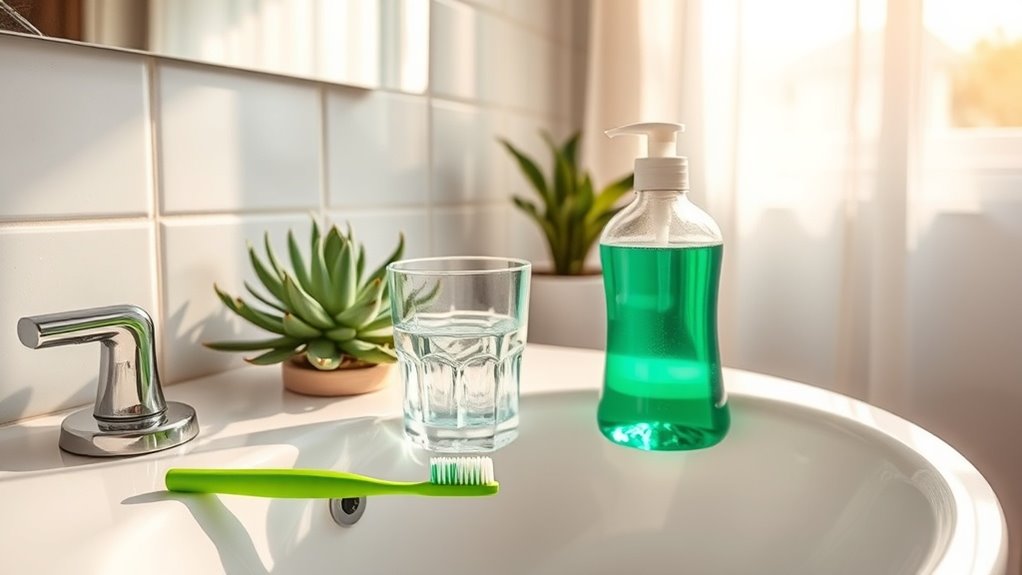Why Brushing Alone Won’t Cure Bad Breath
Brushing your teeth is essential for oral hygiene, but it won’t fully eliminate bad breath. Bacteria lurk in hard-to-reach areas, producing sulfur compounds that linger despite your best efforts. A toothbrush cleans only the surfaces, leaving deeper layers untouched. To truly tackle the issue, you need to consider other methods. What if there are simple yet effective strategies you haven’t tried yet? Let’s explore the broader picture of maintaining fresh breath.
Key Takeaways
- Brushing only cleans visible plaque, leaving bacteria in hard-to-reach areas between teeth and on the tongue.
- Bacteria quickly repopulate after brushing, making it insufficient for long-term bad breath control.
- Old toothbrushes can harbor harmful bacteria, compromising oral hygiene and breath freshness.
- Toothbrushes can’t remove debris and bacteria trapped between teeth, which contributes to foul odors.
- Regular flossing and additional oral care methods are necessary to effectively combat bad breath.
The Role of Bacteria in Bad Breath
Have you ever wondered what causes that unpleasant odor lingering in your mouth? The primary culprit is bacteria.
These microorganisms thrive in your mouth, especially in areas that brushing often misses, like between teeth and on the tongue. They break down food particles and produce sulfur compounds, which contribute to bad breath.
Brushing alone won’t eliminate these bacteria, as they can quickly repopulate. To effectively combat bad breath, you need to go beyond brushing. Incorporating mouthwash, flossing, and regular dental check-ups can significantly reduce bacterial buildup, ensuring your breath stays fresh and pleasant throughout the day. Additionally, drinking water helps wash away bacteria in the mouth, further supporting your oral hygiene efforts.
Limitations of Toothbrushes
While understanding the role of bacteria in bad breath is vital, it’s important to recognize the limitations of toothbrushes in combating this issue. Toothbrushes can’t reach every nook and cranny in your mouth, especially between teeth and along the gum line, where bacteria thrive. Additionally, brushing only removes surface plaque, not the deeper layers where odor-causing bacteria reside. To maintain optimal oral hygiene, it is crucial to replace toothbrush every three to four months, as old toothbrushes can become breeding grounds for harmful bacteria.
| Limitation | Explanation |
|---|---|
| Inaccessible Areas | Toothbrushes can’t effectively clean tight spaces. |
| Surface Cleaning | They only target visible plaque, missing deeper bacteria. |
| Time Constraints | Many brush for too short a time to be effective. |
Importance of Flossing
How can you effectively combat bad breath and maintain oral health? Flossing is crucial.
While brushing removes plaque from the surface of your teeth, it can’t access the tight spaces between them.
Food particles and bacteria linger there, contributing to bad breath.
By flossing daily, you eliminate these hidden culprits, reducing odor and preventing gum disease.
This simple addition to your routine enhances overall oral hygiene, ensuring your breath stays fresh.
Don’t underestimate its importance; flossing is as essential as brushing.
Incorporate it into your regimen, and you’ll notice a significant improvement in your breath and dental health. Additionally, regular flossing disrupts bacterial colonies, helping to prevent cavities and gum disease.
The Impact of Diet on Oral Health
Maintaining good oral health goes beyond just flossing and brushing; your diet plays a significant role in the condition of your teeth and gums.
What you eat can either support or hinder your oral hygiene efforts.
Consider these factors:
- Sugary Foods: They fuel harmful bacteria, increasing plaque and bad breath.
- Acidic Foods: Citrus and soda can erode enamel, leading to sensitivity and decay.
- Dairy Products: They help neutralize acids and promote saliva production, which protects teeth.
- Fiber-Rich Foods: Fruits and vegetables stimulate gums and help clean teeth as you chew.
Additionally, sugary snacks can contribute to plaque buildup and worsen oral health, making mindful dietary choices essential for optimal gum health.
Make mindful dietary choices for optimal oral health.
Additional Remedies for Fresh Breath
What can you do beyond brushing to achieve fresh breath?
Consider incorporating mouthwash with antibacterial properties to kill odor-causing bacteria.
Chewing sugar-free gum stimulates saliva production, which helps neutralize acids and wash away food particles.
Don’t forget your tongue—gently scraping it removes bacteria and debris that contribute to bad breath.
Staying hydrated is crucial; water helps keep your mouth moist and flushes out odor-causing substances.
Finally, incorporating fresh herbs like parsley or mint can provide a natural, immediate freshness.
In addition, understanding the causes of bad breath can help you identify specific triggers and take targeted actions to combat them.
Together, these remedies can significantly enhance your oral hygiene routine and combat persistent bad breath effectively.





